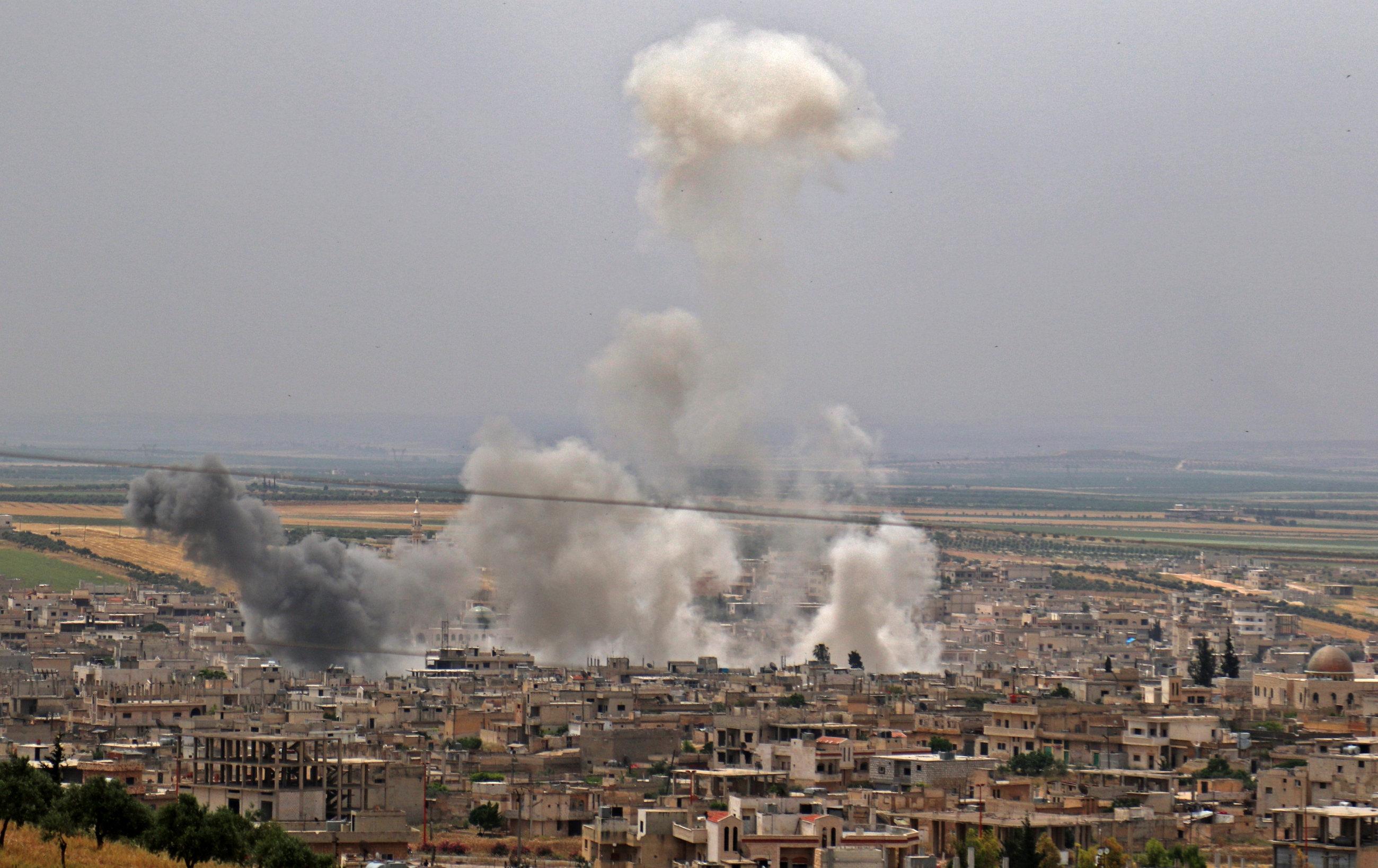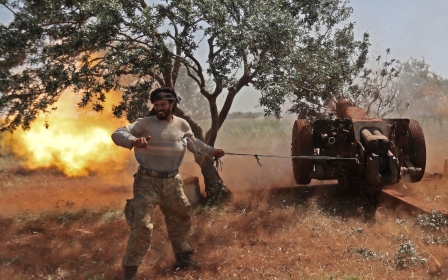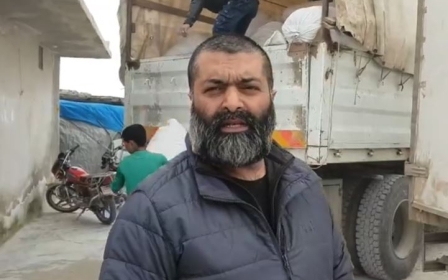US calls for Syrian ceasefire as chemical attack claim countered

A war monitor has countered US suspicions of a Syrian government chemical attack, as a senior American official called for a ceasefire amid heavy fighting in northwestern Syria.
Washington late on Tuesday said it had seen signs that forces loyal to Syrian President Bashar al-Assad may be using chemical weapons, including an alleged chlorine attack, in the latest offensive and warned that it would respond "quickly and appropriately" if this was proven.
"We are still gathering information on this incident, but we repeat our warning that if the Assad regime uses chemical weapons, the United States and our allies will respond quickly and appropriately," State Department spokeswoman Morgan Ortagus said in a statement.
'We have no proof at all of the attack'
- Rami Abdul Rahman, Syrian Observatory for Human Rights
The attack had allegedly taken place in the northern mountains of the Latakia province, as fighting has flared up in northwestern Syria in recent weeks between pro-government forces and opposition militants.
Opposition groups, including the Hayat Tahrir al-Sham alliance led by Syria's former al-Qaeda affiliate, also accused government forces on Sunday of launching a chlorine gas attack on its fighters in the region.
New MEE newsletter: Jerusalem Dispatch
Sign up to get the latest insights and analysis on Israel-Palestine, alongside Turkey Unpacked and other MEE newsletters
But the Syrian Observatory of Human Rights said on Wednesday it had not found any evidence of an attack.
"We have no proof at all of the attack," Rami Abdul Rahman, head of the Syrian Observatory for Human Rights, told AFP news agency.
Meanwhile, White Helmets rescue volunteers, who have reported past chemical attacks in rebel-held areas of Syria, told AFP Wednesday that they had no information on the purported gas attack. "We have not documented any chemical attack in the mountains of Latakia," he said.
US official calls for Idlib ceasefire
Fighting raged on Wednesday as rebels sought to roll back army advances in the face of heavy bombardment, state media, insurgents and the Observatory said.
Weeks of air strikes, shelling and clashes have driven some 180,000 people from their homes, raising fears of a new humanitarian disaster.
"What we really need in Idlib and throughout the country is a ceasefire," James Jeffrey, US special representative for Syria engagement and special envoy to the global coalition to defeat the Islamic State (IS) group, said at a House of Representatives Foreign Affairs Committee hearing.
"These conflicts, back and forth exchanges .... just put tremendous pressure on civilians, they raise the spectre of nation-to-nation clash," he said. "So we're very much engaged in trying to get this stopped and get it back to the ceasefire we had basically since September."
Alleging opposition forces had breached an existing ceasefire, Assad launched his assault late last month, triggering a civilian exodus by bombarding Idlib and adjacent areas.
'What we really need in Idlib and throughout the country is a ceasefire'
-James Jeffrey, US special representative for Syria
The latest clashes mark the biggest escalation since last summer between Assad and his rebel enemies in Idlib province and a belt of territory around it.
The Trump administration has twice bombed Syria over Assad's alleged use of chemical weapons, in April 2017 and April 2018. In September, a senior US official said there was evidence showing chemical weapons were being prepared by Syrian government forces in Idlib.
Jeffrey also said the US was engaging with Russia to help de-escalate the conflict in Idlib. "Despite the recent tragic offensive there, Moscow has reconfirmed, at least on paper, their commitment to the ceasefire deal with the Turks," he said.
Meanwhile, the Syrian army shot down a drone loaded with bombs near Hama's airport, Syrian state TV said late on Wednesday.
The drone was launched by Nusra Front militants, the state television added. No further details were immediately available.
Middle East Eye delivers independent and unrivalled coverage and analysis of the Middle East, North Africa and beyond. To learn more about republishing this content and the associated fees, please fill out this form. More about MEE can be found here.




